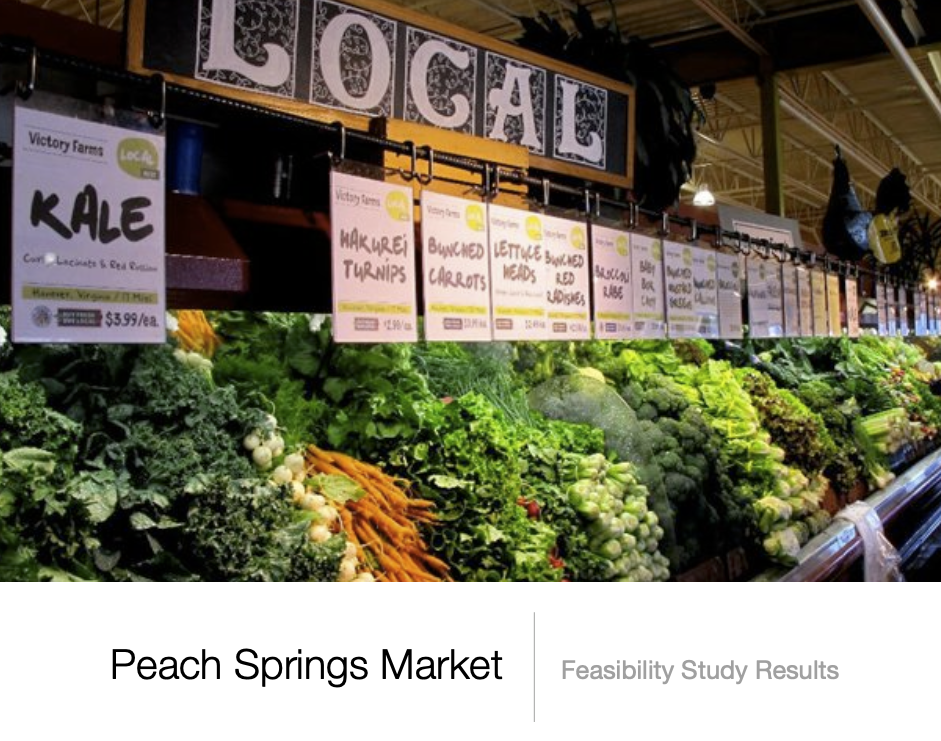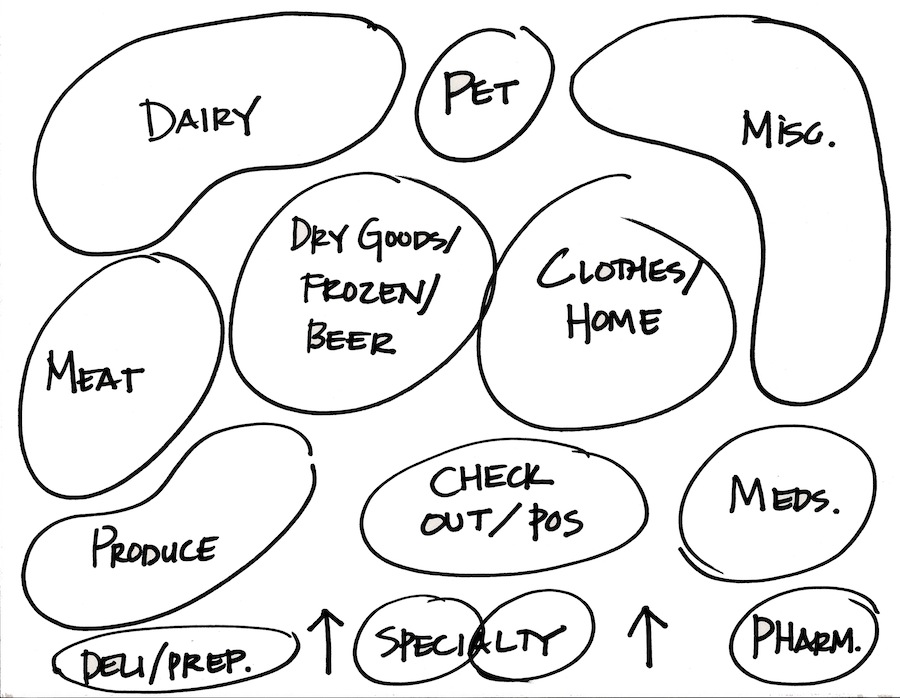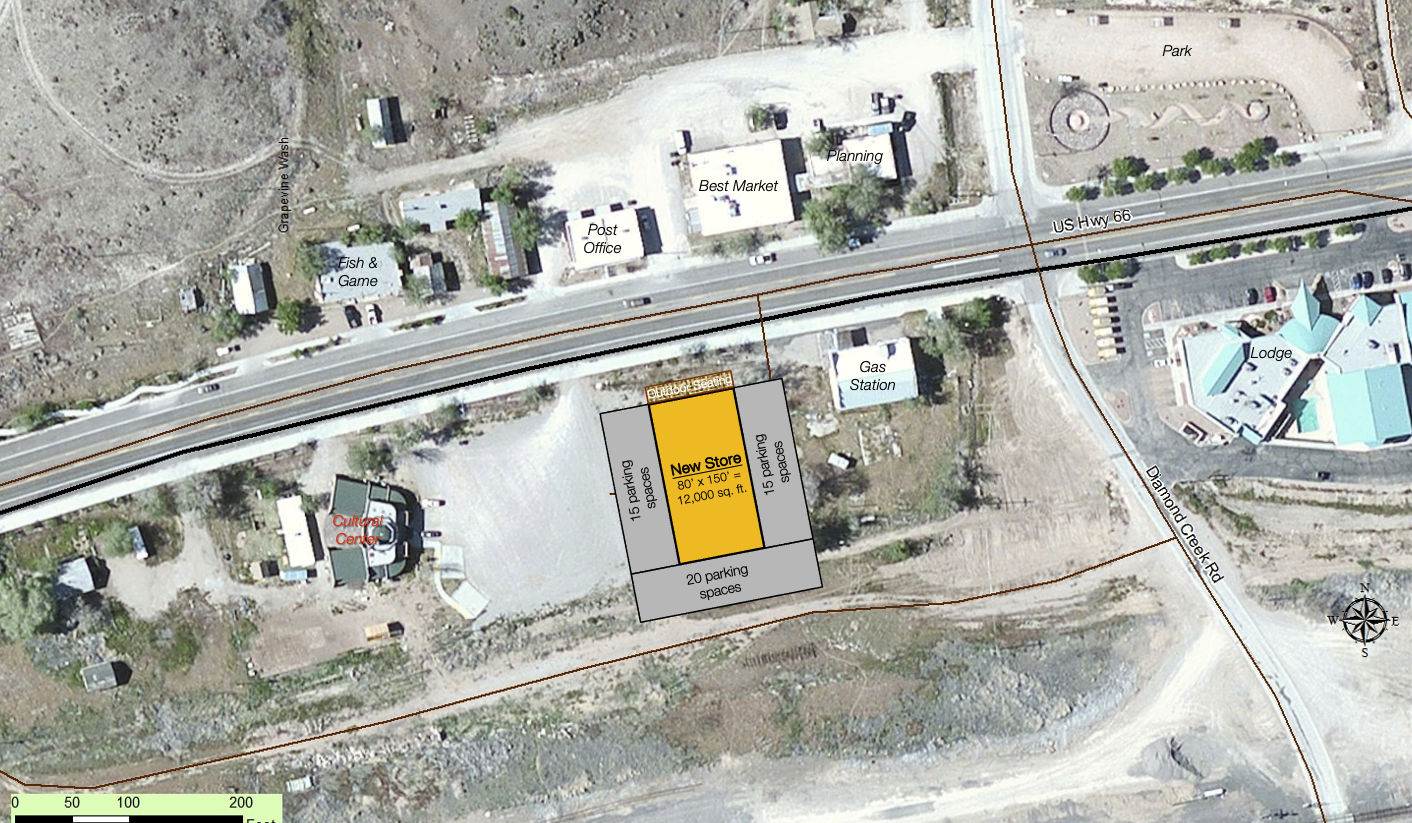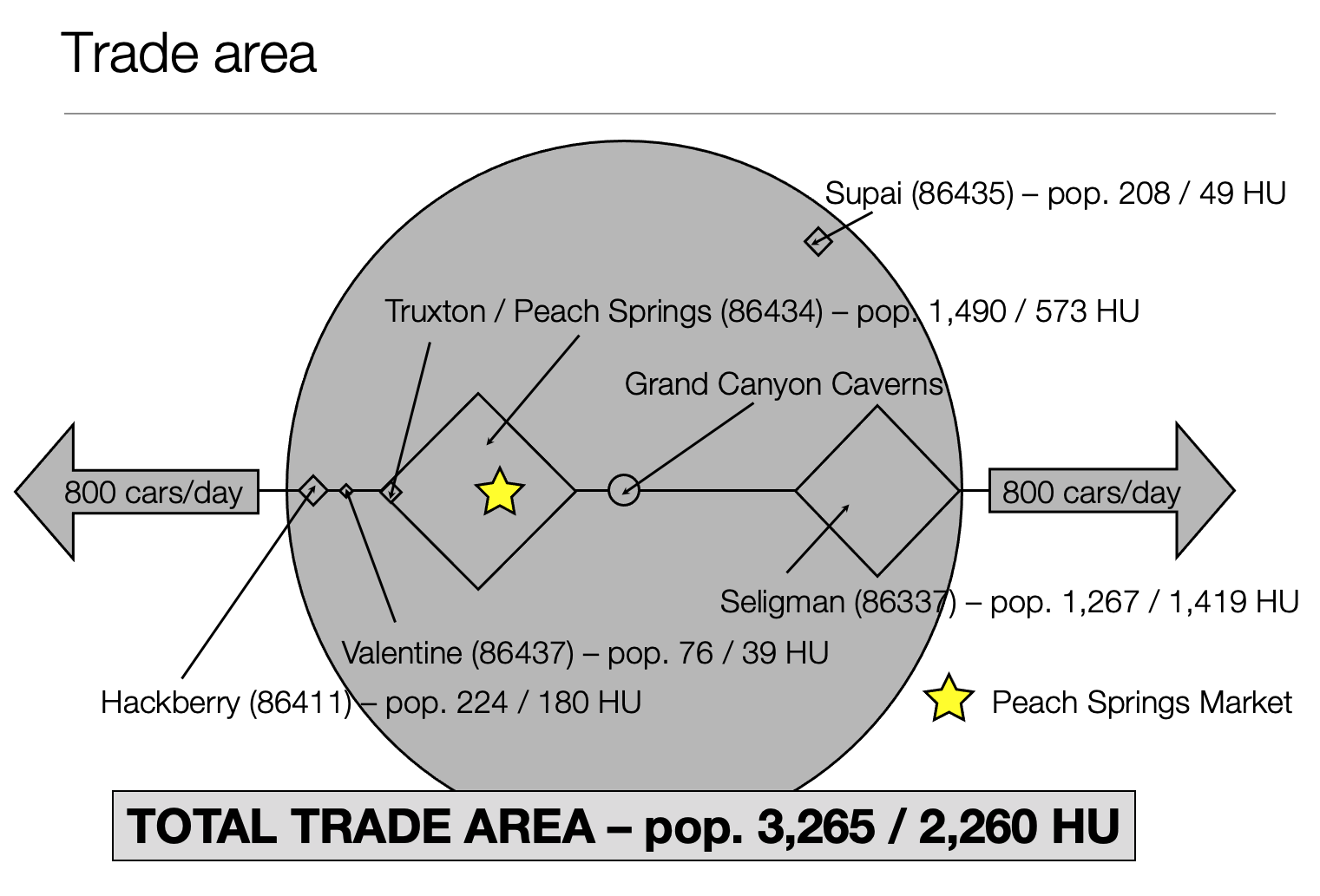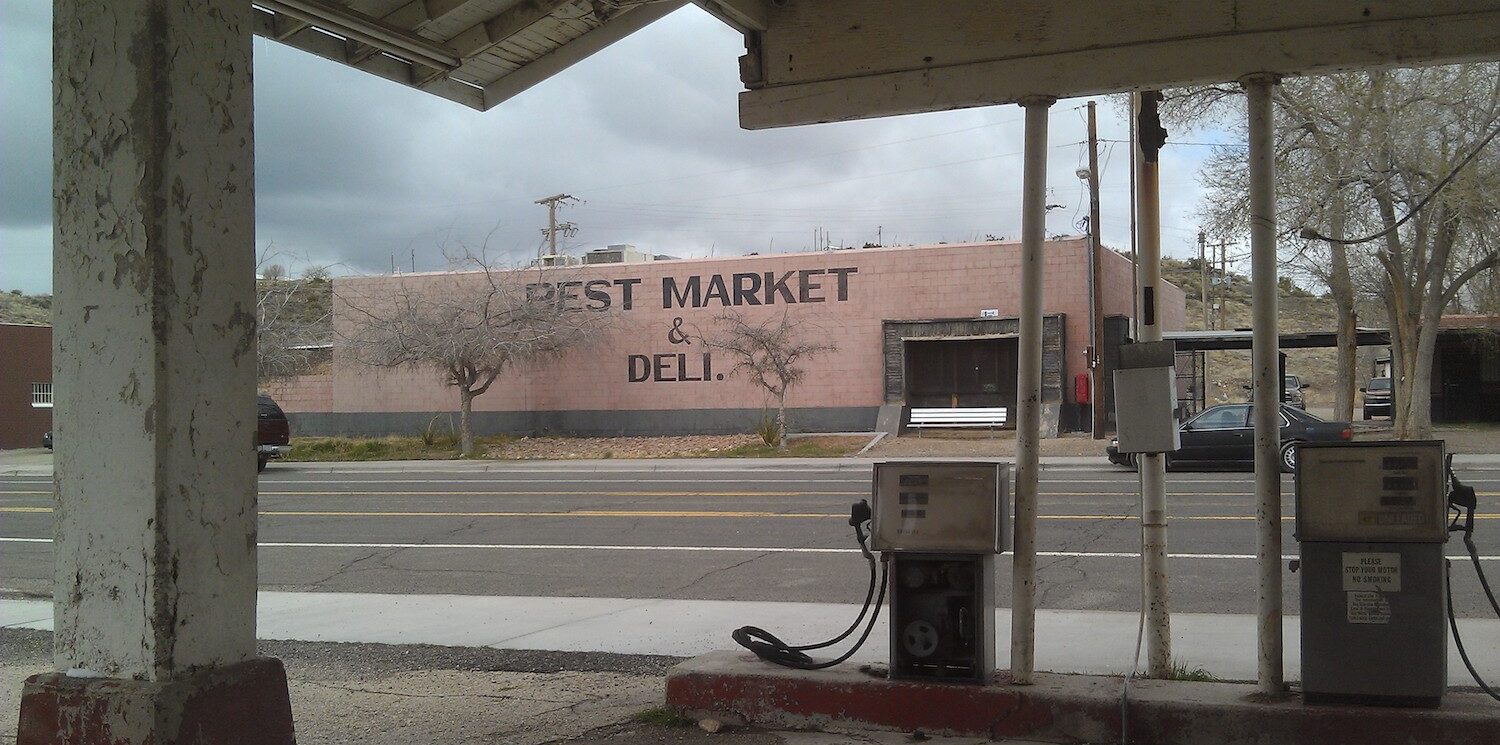Client: Hualapai Tribal Nation /
Location: Peach Springs /
Services: BIA feasibility study & business plan /
This feasibility study examines the potential for developing a new grocery store in Peach Springs, Arizona to serve the Hualapai Tribe and surrounding communities. The study was conducted by Primaltrust’s Greg Bartlett for the Hualapai Tribe’s Planning and Economic Development Department.
The study found that the existing Best Market grocery store in Peach Springs is inadequate to meet community needs. The building is in poor condition, with issues like roof leaks, broken heating/cooling systems, and unsanitary conditions. Community surveys indicated dissatisfaction with Best Market’s high prices, limited selection, and poor quality products.
A market analysis revealed significant potential demand for an improved grocery store. The total trade area population is estimated at 3,265 people, including Peach Springs residents and nearby communities. Additionally, Peach Springs receives over 150,000 visitors annually who could patronize a new store.
The study recommends constructing a new 15,000 square foot grocery store on a vacant lot across from the existing Best Market. This would allow for a modern facility with an expanded product selection, including fresh produce, meats, and traditional Hualapai foods. Recommended services include a deli, café, ATM and visitor center.
For the business model, the study suggests the Hualapai Tribe own the building and lease it to an experienced grocery operator like Bashas (a family owned chain of Arizona grocery stores). The operator would share revenues and profits with the tribe and commit to hiring and training tribal members. The study projects annual store revenues of $5.3 million.
The economic impact for the tribe is estimated at $212,000 in annual income from rent and profit sharing. Additionally, the store would create 24-31 new jobs for tribal members over 5 years. The project would also reduce the significant income currently being spent at grocery stores in Kingman, estimated at over $6 million annually.
The study outlines an implementation plan, as well as financing options, including private loans, community development funds, and various federal grant and tax credit programs.
Recommended store features include a 25% checkout/customer service area, 60% display aisles, and 15% receiving/storage/office space. The layout should guide customers past promotional items and essentials like milk/eggs. Operating hours should be extended to evenings and Sundays based on community feedback.
The study emphasizes the importance of strong supplier relationships, inventory management, and customer service to ensure profitability given typical grocery profit margins of 29-33%. Security measures and proper equipment/technology are also discussed.
Overall, the study concludes a new grocery store would provide significant benefits to the Hualapai community. These include reducing travel time/costs for groceries, creating jobs, generating revenue for the tribe, improving access to healthy foods, and supporting economic development momentum in Peach Springs.
The study authors recommend moving forward with the project given the clear community need and projected economic benefits. Next steps would include finalizing agreements with an operating partner, obtaining financing, and beginning the design/construction process. With proper planning and execution, the new store could become an important community asset and economic driver for the Hualapai Tribe.
